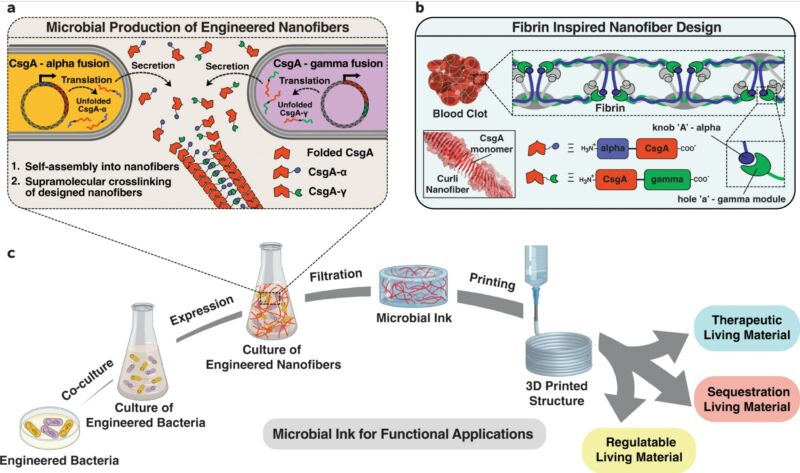
Enlarge (credit: A. Duraj-Thatte, A. Manjula-Basvanna et. al./Nature)
3D printing has already been put to use in many interesting applications, from large-scale homebuilding to robot hands that are good at Super Mario Bros.—and even creepy materials that can shape-shift into a human face. But researchers Anna M. Duraj-Thatte and Avinash Manjula-Basavanna have something more lively in mind. A new type of 3D printer ink with self-assembling properties may play a role in the future of renewable building materials and even ink that grows itself.
Researchers from Harvard University and Harvard Medical School, among others, reported their findings in a paper published Tuesday in Nature Communications. As reported by Phys.org on Saturday, the paper details ink made of Escherichia coli (E. coli) cells bioengineered to make nanofibers.
Despite 3D printing's advances, creating arbitrary shapes and patterns is still challenging, the paper explains. So the researchers set out to create what they call "microbial ink" made "entirely from genetically engineered microbial cells, programmed to perform a bottom-up, hierarchical self-assembly of protein monomers into nanofibers, and further into nanofiber networks that comprise extrudable hydrogels."
No comments:
Post a Comment